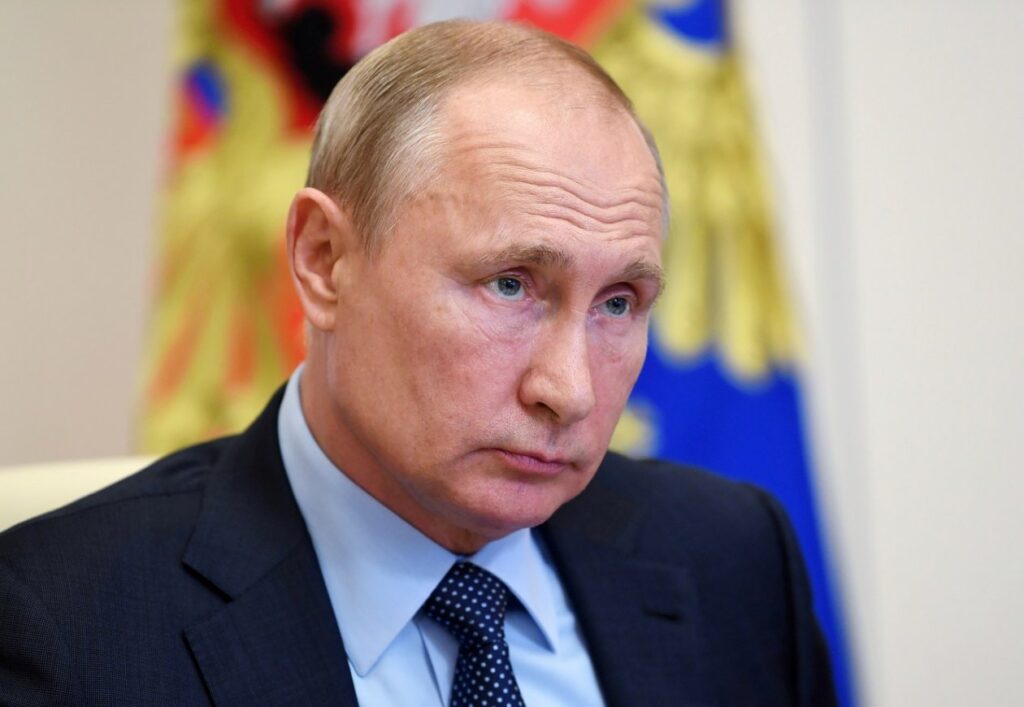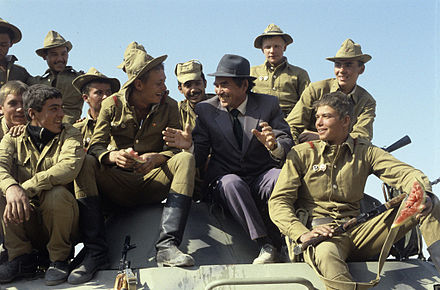
By Anatol Lieven, The Nation, 11/13/21
…Between independence in 1991 and the revolution in 2014, Ukraine was evenly balanced between supporters of an ethnic version of Ukrainian identity in the country’s western and central regions, and supporters of a civic version (with a strong guaranteed role for the Russian language and culture) in the east and south. The events of 2014, and the conflict with Russia that followed, have led to a situation in which ethnic nationalists (with Western backing) dominate national politics in Kiev. However, their program remains highly unpopular in the Russian-speaking areas and is overwhelmingly rejected in the Donbas.
To bring about a peace settlement, it is necessary to eliminate or discount the factors that brought about a failure of the Minsk II agreement. Chief among these is Ukraine’s refusal to guarantee permanent full autonomy for the Donbas. The main reason for this refusal, apart from a general commitment to retain centralized power in Kiev, has been the belief that permanent autonomy for the Donbas would prevent Ukraine from joining NATO and the European Union, as the region could use its constitutional position within Ukraine to block membership. The official US commitment to eventual Ukrainian NATO membership—however empty in real terms—has in turn inhibited the United States from playing a positive role in resolving the conflict.
These Ukrainian and American arguments are, however, a classic case of circular reasoning: So long as Ukraine is involved in a territorial conflict, it will never be invited to join NATO and the EU. Nor should it be. Even if a US administration were prepared to take such a risk, Germany and France would certainly veto it. And there is no way to solve this conflict on Ukrainian terms without victory in a war against Russia, which is impossible. Realistically speaking, Minsk II’s basic terms—an end to the war and autonomy for the Donbas within Ukraine—are the best deal that Ukraine is ever going to get.
If the United States drops the hopeless goal of NATO membership for Ukraine, it will be in a position to pressure the Ukrainian government and parliament to agree to a “Minsk III” by the credible threat of a withdrawal of US aid and political support. And if Moscow were to reject or sabotage this agreement, or permit the Donbas separatists to do so, then all existing Western sanctions against Russia related to the Donbas and Crimean disputes should not only remain in place but be greatly intensified.
The United States ought to promote the following main terms for a settlement:
§ A Ukrainian constitutional amendment establishing the Donbas region as an autonomous republic within Ukraine (including those parts of the Donetsk and Luhansk provinces currently controlled by Ukraine); and
§ A constitution for the Donbas Autonomous Republic (including its constitutional relationship with Ukrainian national institutions in Kiev) to be submitted to the people of Donetsk and Luhansk in a referendum supervised and monitored by the UN and the Organization for Security and Cooperation in Europe.
If a majority of voters in the Donbas oppose the constitutional amendment, then they will have chosen to remain within Ukraine under its present unitary constitution. But in the likely event of approval in the referendum, the amendment would then be submitted to the Ukrainian parliament. If the parliament rejected it, a new internationally supervised referendum would be held giving the people of the region a straight choice between rejoining a unitary Ukraine and becoming independent, with a future option to join the Russian Federation.
It should be noted, however, that annexation is not Russia’s preferred option for the future of the region. Moscow could have annexed the Donbas (as it did Crimea) at any time during the past seven years but has refrained from doing so. Moscow is determined to defend the Donbas against any attempt at Ukrainian reconquest; but for good political and strategic reasons, it would much prefer that the Donbas remain a pro-Russian autonomous part of Ukraine. However, if Ukraine launches a new war, annexation will certainly follow, leading to a new crisis in Russia’s relations with the West.
In order to secure the establishment and maintenance of autonomy, the referendum on autonomy and the establishment of a regional government under the Ukrainian constitution must come before Ukraine takes control of the border with Russia. The police and courts in the Donbas Autonomous Republic would come under the regional government. Military security would be provided by a UN peacekeeping force drawn from neutral countries outside Europe and established as part of a Security Council resolution in support of the peace settlement. US and NATO forces would not be included, nor would Russian forces or those of countries allied to Russia. This peacekeeping force would also supervise and certify the disarmament of the existing separatist armed forces, the withdrawal of all Russian forces, and the withdrawal of the Ukrainian armed forces from their present positions in Donetsk and Luhansk.
The United States, of course, has a federal system, as do Canada, Australia, Germany, Italy, Switzerland, Belgium, India, and South Africa. There can thus be no objection from democratic principle to a federal system for Ukraine, or to special autonomy for the Donbas. Given the vast differences in language and culture between different parts of Ukraine, a federal constitution would seem the best political system for the country as a whole. Failing that, “asymmetric federations,” in which certain regions enjoy special status or one autonomous region exists in an otherwise unitary state, are also an accepted part of certain democracies…
Read full article here.

